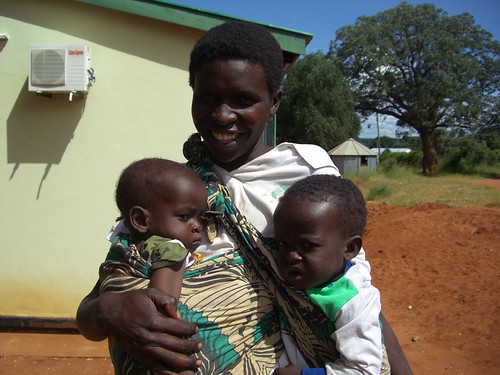One billion people throughout the world suffer from hunger, a figure which has increased by 100 million because of the global financial crisis, says the United Nations. We are all complaining about the effect the world reccession is having upon us, but do we give a thought as to how badly people are affected in the developing countries. Lower incomes, unemployment, reduced foreign investment increase in food prices have attributed to a record number of people suffering from hunger and yet in the developed world relatively few are affected.
Zambia is in Sub-Sahara Africa where 265 million people are hungry, many relying on food aid. In the past twelve months The Butterfly Tree has provided bore holes to four schools and two villages in Mukuni now we need to use that water to develop agriculture and for the communities to grow food so that they can become sustainable. I hear sad stories of African children unable to walk the long distance to school due to lack of food, pupils who are lethargic in class and have actually seen a number of them fall asleep over their desks. I recently met a mother with twins who had walked three miles to the clinic, the infants were suffering from malnutrition, she hadn’t eaten for twenty-four hours having no money to buy a bag of ground maize. They are now receiving aid through our under fives feeding program.

Food for Mukuni – mother & twins no longer suffering from hunger
More feeding programs are needed until these communities can become sustainable, a difficult task with ever increasing costs, floods and elephants destroying crops. The Butterfly Tree is currently providing a feeding program, sponsored by Cunninghams, for over 500 vulnerable and orphaned children at Mukuni Basic School. We have just commenced a second program at Siamasimbi Basic School. Each day the pupils are given a nutritional meal of Nshima (ground maize), meat or dried fish (kapenta) and vegetables.

Feeding programs like this one at Mukuni needed for more schools
We are seeking micro-financing so that groups of widows, schools and communities can grow crops, produce goats and chickens for meat and eggs, fish farming and fruit trees.



